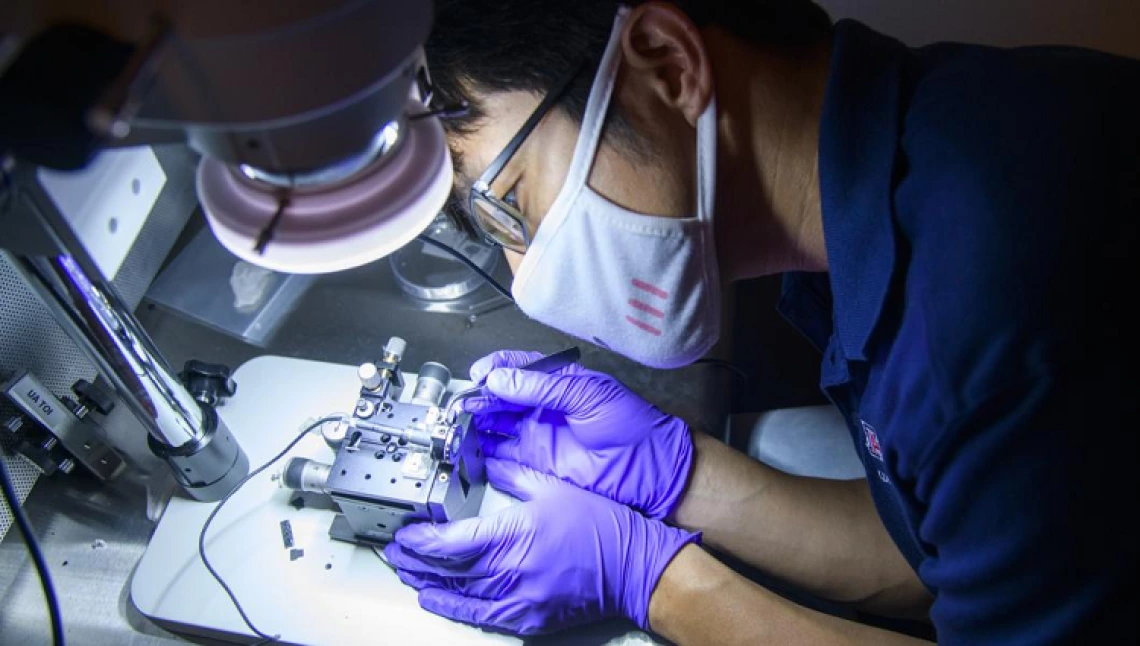Kang Creating Cancer Diagnosing Microscope

The sun's ultraviolet rays cause the majority of skin cancer cases, and this is especially dangerous in the desert southwest. But BME associate professor Dongkyun "DK" Kang is collaborating with fellow researchers in the University of Arizona Cancer Center to create a portable, less expensive version of a skin cancer diagnostic microscope.
The Center’s Skin Cancer Institute has a novel device that provides noninvasive imaging of the skin called reflectance confocal microscopy. It allows doctors to quickly and safely diagnose many skin cancers and monitor responses to treatment without a biopsy. However, The current instrument costs more than $80,000, making it too expensive for many clinical practice settings. This team aims to create a handheld or portable version of the device which costs closer to $1,000.
The technology is made with very sophisticated electrical and optical components, according to Kang, who is also an assistant professor in the James C. Wyant College of Optical Sciences. His lab has been focused on developing a portable confocal microscope, or PCM, using an inexpensive near-infrared LED to lower the manufacturing costs and make the device more practical for clinical use. Kang has also tested a smartphone PCM device at the Infectious Diseases Institute in Uganda.
“The goal is to make it widely available not just to dermatologists, but to practitioners around the world,” Kang said. “Collaboration is very important so that we are making this technology work in the context of the clinical setting. I work very closely with Clara and also my collaborators with the project in Uganda to see what we can improve.”
